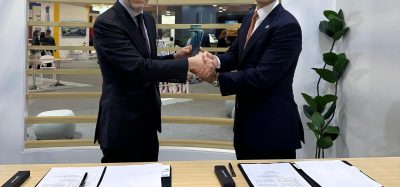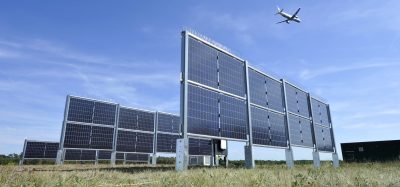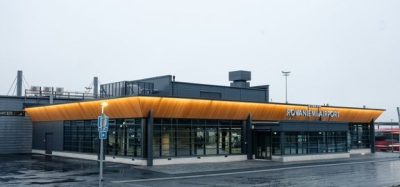Interview Spotlight: Mikołaj Wild, CEO of Centralny Port Komunikacyjny (CPK) Airport
Posted: 9 November 2023 | Mikolaj Wild | No comments yet
Mikołaj Wild, CEO of Centralny Port Komunikacyjny (CPK) Airport, answers some questions on the airport’s new project.


Credit: CPK
Recently in Brussels, CPK presented strategies for the sustainable development of the airport. What was the reason?
The demand for sustainable mobility is growing rapidly and, at the same time, the fight against climate change and atmospheric pollution has become one of the most important challenges for the European transport sector. On the other hand, the aviation sector is perceived as the one where decarbonisation is the most difficult to implement in the entire transport industry. CPK has been committed to fighting climate change and supporting a shared green future from the very beginning and has included sustainability as one of 3 key pillars of its investment programme. During the planning and design phase, we set very ambitious climate change mitigation and pollution reduction targets, making CPK the first ‘Net-Zero Ready’ airport in the region when it is launched. Airports must become ‘green’ and retrofitting is a much more complicated process than building one from scratch with existing and even future innovative technologies. Poland and the CEE region need a multi-modal transport hub and CPK is definitely going to benefit from the unique opportunity to deliver it in a state-of-the-art innovative manner and in as much socially and environmentally responsible way as technologically possible. We hope that CPK will set a new standard for green airports around the world, making a major contribution to decarbonisation in transport, which is what we wanted to present to our partners, industry and the public at the Brussels meeting.


Credit: CPK
Why is the CPK project unique?
The CPK project is unique for a number of reasons. First and foremost, it is multi-modal, meaning that it integrates different modes of transport in one place. As a result, it has the potential to completely transform the transport sector, making it more sustainable and innovative on a global scale. Additionally, decarbonisation is a priority for CPK, indicating a drive to reduce CO2 emissions and environmental impact. CPK is a transport ‘game changer’ in the region, bringing with it much greater connectivity, which will undoubtedly contribute to greater social and economic development. Such development will not only raise the competitiveness of various sectors, but also boost economic development in the entire region. CPK is not only a response to today’s transport challenges, but also a vision of a future in which passenger and freight transport is more sustainable, efficient and competitive.


Credit: CPK
What is CPK’s expectation from EU legislation on aviation development?
The European Union aims to become a frontrunner in finding regulatory solutions to a complex challenge of greening the EU aviation sector. In principle, CPK supports this approach and wants to make a vital contribution to this ambitious goal. As always, the devil is in the details, though. Let me take the example of ReFuelEU Aviation initiative which introduces mandatory targets for the use of Sustainable Aviation Fuels. As the future airport, we will be 100% ready with our airside infrastructure to accommodate this new demand. However, we have some concerns about the availability of SAF in the EU market, within the next couple of years – the risk which remains on fuel producers and air carriers’ side. There is also a risk that other EU regulations for aviation sector might be overcooked and thus negatively impact the EU air sector’s competitiveness and intra-EU connectivity, consequently pushing airlines to look for transport hubs out of the Union. That is why we believe that taking steps to create a more sustainable future for European transport, requires more dialogue with key stakeholders and more consideration for protecting the future economic development of Europe. In this context, our biggest concern is the Energy Taxation Directive, which taxes aviation fuels in EU (not only fossil derivatives but also SAFs) leading to significant costs increases for a EU airlines, already heavily affected by COVID-19 lock‑downs, war in Ukraine and other EU regulations. These costs will naturally be shifted to passengers and consequently decrease European connectivity, economic performance and social inclusiveness. What is more, the revenues from these taxes are not earmarked for greening EU aviation but instead will simply dissolve in national budgets of the Member States. We think, the EU funding and financing stream should go towards innovation and R&D in aviation to help us find new breakthrough technologies to decarbonise aviation (electric/hydrogen planes etc. To sum up, the EU should do its best to reduce emissions not mobility. As the EU Commission President once put it: “Greening mobility must be the new license for the transport sector to grow.”
Join us live: Shaping the Next Generation of Hold Baggage and Air Cargo Screening
Join us live for an insightful webinar on 11th December at 14:00 GMT, in collaboration with Smiths Detection, as we explore the strategic balance of operational efficiency, regulatory compliance, and sustainability in high-volume security environments.
This session offers a focused look into future-proofing your security strategy.
Key learning points
- Cost Reduction: Strategies to minimize bag travel time while simultaneously reducing operational costs.
- Regulatory Roadmap: Insights into the next wave of regulatory changes and their impact on future investment decisions.
- Sustainable Systems: Practical approaches to building sustainability into security systems and lowering the total cost of ownership (TCO).
- Scalable Solutions: Real-world examples of scalable systems supporting current airport growth and preparing for tomorrow.
Register now for expert insights, case studies, and actionable strategies on operational efficiency!
The International Airport Summit is open for registration!
Date: 19 – 20 November 2025
Location: JW Marriott Hotel Berlin
At our flagship event of the year, we will dive into the future of airport operations, with expert-led sessions on passenger experience, innovative smart technologies, baggage handling, airside operations, data, security, and sustainability.
This is where global airport leaders come together to share insights, challenges, and real-world solutions.
Limited complimentary passes are available for eligible professionals – first come, first served!
Issue
Related topics
Airport development, Emissions, Sustainability, Sustainable Aviation Fuel (SAF)

















